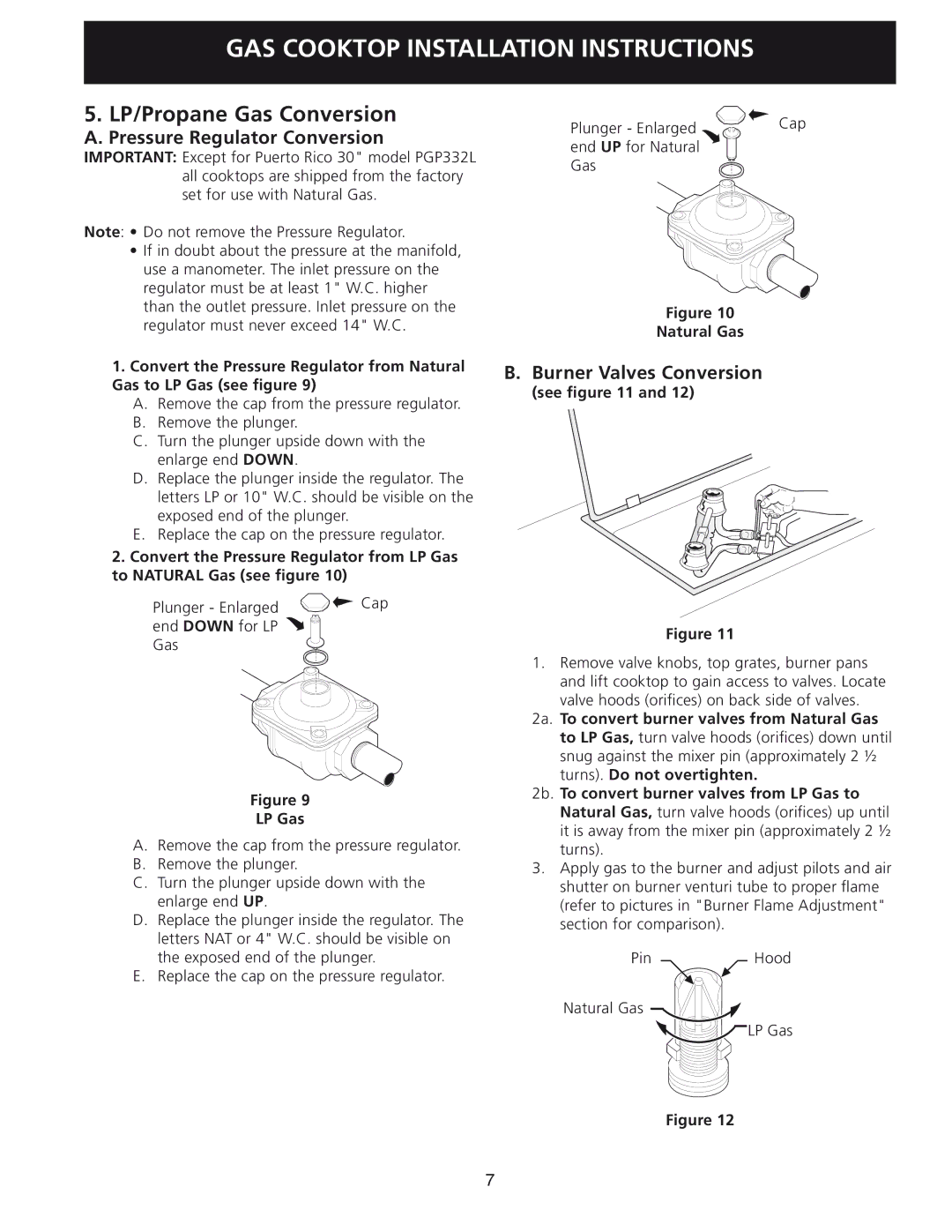
GAS COOKTOP INSTALLATION INSTRUCTIONS
5. LP/Propane Gas Conversion
A. Pressure Regulator Conversion
IMPORTANT: Except for Puerto Rico 30" model PGP332L all cooktops are shipped from the factory set for use with Natural Gas.
Note: • Do not remove the Pressure Regulator.
•If in doubt about the pressure at the manifold, use a manometer. The inlet pressure on the regulator must be at least 1" W.C. higher than the outlet pressure. Inlet pressure on the regulator must never exceed 14" W.C.
1.Convert the Pressure Regulator from Natural Gas to LP Gas (see figure 9)
A.Remove the cap from the pressure regulator.
B.Remove the plunger.
C.Turn the plunger upside down with the enlarge end DOWN.
D.Replace the plunger inside the regulator. The letters LP or 10" W.C. should be visible on the exposed end of the plunger.
E.Replace the cap on the pressure regulator.
2.Convert the Pressure Regulator from LP Gas to NATURAL Gas (see figure 10)
Plunger - Enlarged ![]()
![]() Cap end DOWN for LP
Cap end DOWN for LP ![]()
![]()
Gas
Figure 9
LP Gas
A.Remove the cap from the pressure regulator.
B.Remove the plunger.
C.Turn the plunger upside down with the enlarge end UP.
D.Replace the plunger inside the regulator. The letters NAT or 4" W.C. should be visible on the exposed end of the plunger.
E.Replace the cap on the pressure regulator.
Plunger - Enlarged ![]() Cap end UP for Natural
Cap end UP for Natural
Gas
Figure 10
Natural Gas
B. Burner Valves Conversion
(see figure 11 and 12)
Figure 11
1.Remove valve knobs, top grates, burner pans and lift cooktop to gain access to valves. Locate valve hoods (orifices) on back side of valves.
2a. To convert burner valves from Natural Gas to LP Gas, turn valve hoods (orifices) down until snug against the mixer pin (approximately 2 ½ turns). Do not overtighten.
2b. To convert burner valves from LP Gas to Natural Gas, turn valve hoods (orifices) up until it is away from the mixer pin (approximately 2 ½ turns).
3.Apply gas to the burner and adjust pilots and air shutter on burner venturi tube to proper flame (refer to pictures in "Burner Flame Adjustment" section for comparison).
PinHood
Natural Gas
![]()
![]()
![]() LP Gas
LP Gas
Figure 12
7
